Impact Home Staging Experts on Balancing Pest Control with Pollinator Protection
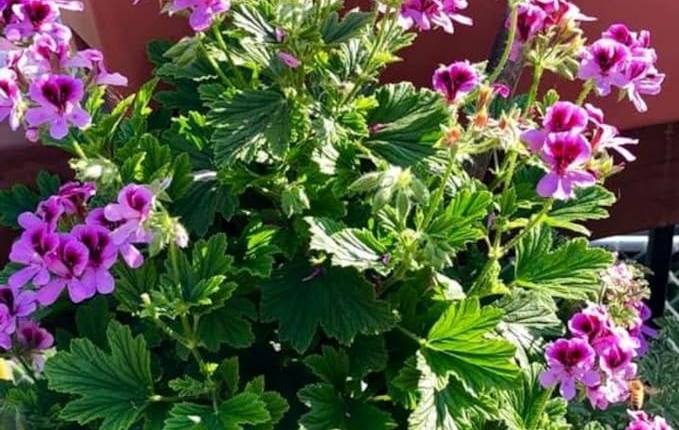
As the warmer months beckon us outdoors, our backyard and patio spaces become sanctuaries for relaxation, entertainment, and reconnecting with nature. However, the pesky presence of flies and mosquitoes can quickly turn these serene settings into discomfort zones. The instinct to reach for chemical insecticides may be strong, but before you resort to harsh measures, consider the delicate balance of your backyard ecosystem.
While it’s understandable to want to rid your outdoor living area of bothersome pests, it’s crucial to recognize the invaluable role that certain insects play in maintaining a healthy environment. Bees, butterflies, and other pollinators are not only essential for the reproduction of many plants but also contribute to the overall biodiversity of your backyard.
So, how can you strike a balance between keeping your outdoor space free from flies and mosquitoes while still protecting these beneficial insects? Here are some eco-friendly strategies to help you achieve a bug-friendly backyard:
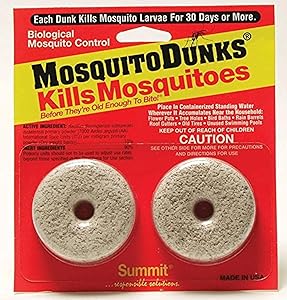
Natural Repellents: Incorporate plants that naturally repel flies and mosquitoes into your garden. Herbs like lavender, basil, and rosemary not only add fragrance and beauty but also deter pests with their scent. Citronella, lemon balm, and marigolds are also effective at keeping mosquitoes at bay.
Strategic Planting: Design your garden layout to attract pollinators while repelling pests. Planting flowers such as bee balm, coneflowers, and sunflowers will not only provide nectar for bees and butterflies but also create a barrier between your living space and areas where mosquitoes breed.
Remove Standing Water: Mosquitoes breed in stagnant water, so eliminate any sources of standing water in your yard. Regularly empty bird baths, flowerpot saucers, and gutters to prevent mosquitoes from laying eggs. If your yard boasts a pond or other water feature, consider using Mosquito “dunks” which prevent both black flies and mosquito larvae from hatching without harming aquatic life or the environment.
Invest in Birdhouses and Bat Boxes: Encourage natural predators of insects by installing birdhouses and bat boxes in your backyard. Birds and bats feed on flying insects like flies and mosquitoes, helping to keep their populations in check without the need for chemical pesticides.
Avoid Chemical Pesticides: Choose natural pest control methods instead of chemical pesticides, which can harm both beneficial insects and the environment. Products containing neem oil, diatomaceous earth, or insecticidal soap are effective against pests while being safe for pollinators. You may be approached by companies selling “organic” pest control, however, know that these services’ products will still kill pollinators.
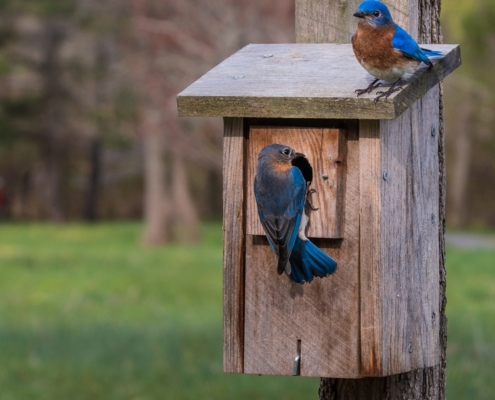
Create Habitat for Beneficial Insects: Provide shelter and food sources for beneficial insects by incorporating native plants, shrubs, and trees into your landscape. Consider leaving a portion of your yard wild or creating a designated pollinator garden to attract bees, butterflies and hummingbirds who are also pollinators! Check out this website with suggestions on how to make your garden a mecca for these beneficial bugs.
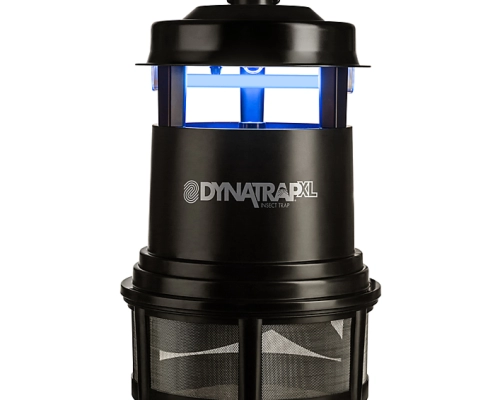
Be Cautious with Bug Zappers: While bug zappers may seem like a convenient solution for eliminating flying insects, they can also inadvertently harm beneficial insects like moths and beetles. Additionally, the light emitted by bug zappers can disrupt the natural behaviors of nocturnal pollinators. If you choose to use a bug zapper, place it away from areas frequented by pollinators and consider using it sparingly as a supplementary measure rather than as your primary method of pest control. Always prioritize eco-friendly alternatives that minimize harm to beneficial insects and the overall ecosystem.
By implementing these strategies, you can enjoy a bug-friendly backyard that is both comfortable for you and supportive of the diverse insect life essential for a thriving ecosystem. With a little patience and a mindful approach to pest control, you can create a harmonious outdoor living space that benefits both you and the environment.
User
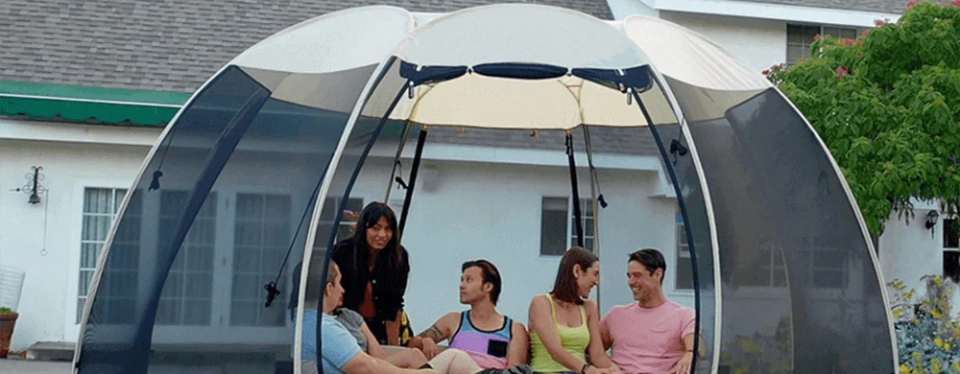
Utilize Screen Tents: Create a protected environment where you can relax and dine without the nuisance of flies and mosquitoes. When properly sealed, they also prevent entry for other unwanted pests while preserving the presence of beneficial insects outside the enclosure. Plus, screen tents offer versatility, as they can be easily set up and taken down as needed, making them a practical and eco-friendly addition to any outdoor space. This Alvantor tent is big enough for the whole family!
By implementing these strategies, you can enjoy a bug-friendly backyard that is both comfortable for you and supportive of the diverse insect life essential for a thriving ecosystem. With a little patience and a mindful approach to pest control, you can create a harmonious outdoor living space that benefits both you and the environment.








